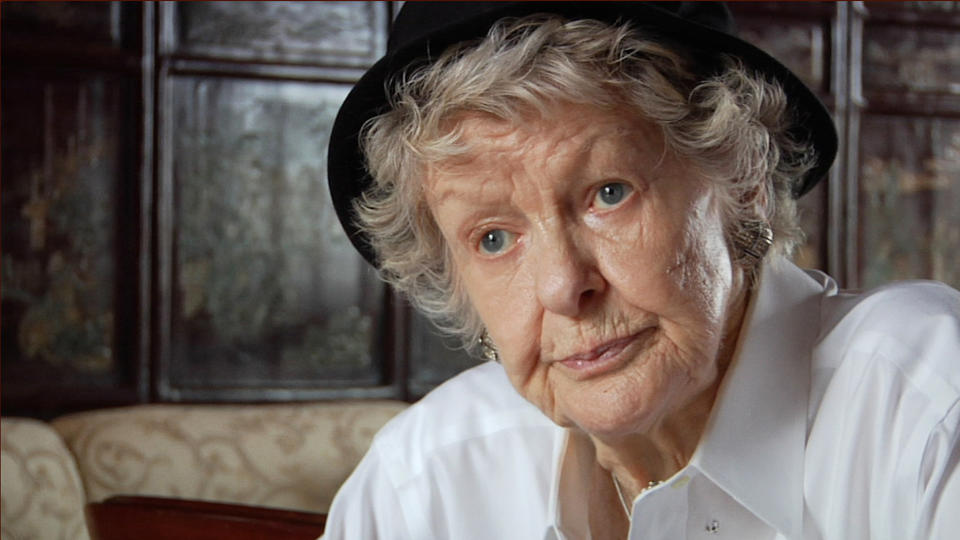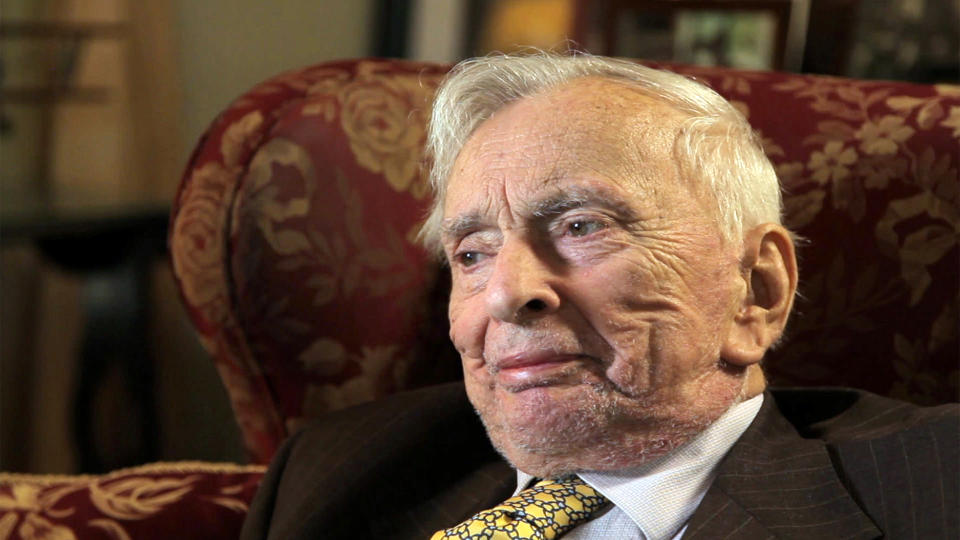At Tribeca, big personalities on the big screen
NEW YORK (AP) — Big city. Big personalities.
The 12th annual Tribeca Film Festival, which kicks off Wednesday, is highlighted by a handful of notable documentaries about iconoclasts whose verbose vitality is barely contained within 90 minutes. Portraits of Elaine Stritch ("Elaine Stritch: Shoot Me"), Richard Pryor ("Richard Pryor: Omit the Logic") and Gore Vidal ("Gore Vidal: The United States of Amnesia") will all premiere — and will have plenty to say — at the New York festival.
Among other things, they are a few of the greatest — the most urbane, the funniest, the smartest, the brassiest and the most uncompromising — mouths of the late 20th century. And New York loves a mouth.
"The four most beautiful words in the English language: I told you so," says an aged Vidal in "The United States of Amnesia."
The Tribeca Film Festival, a sprawling downtown event covering all genres of movies and countless other flashy, red-carpet events, is always something of a cacophony. Although certain full-throated voices can't help but rise above the din, there's no shortage of variety at this year's Tribeca.
The festival opens with a celebration of the Brooklyn indie rock band The National with both a concert and a documentary, "Mistaken for Strangers," made by Tom Berninger, brother of the lead singer, Matt Berninger. Ten days later, Tribeca will draw to a close with a restored 30th anniversary screening of a classic from one of the festival founders: "The King of Comedy," in which Robert De Niro plays an obsessive stand-up comedian.
Neither is the kind of major event that Tribeca has sometimes used to draw the spotlight (last year's festival concluded with "The Avengers"). But festival programmers point to "Mistaken for Strangers" as a nod to indie culture and "The Kind of Comedy" as a tribute to film restoration.
In between, Tribeca will feature a few notable premieres with bold-face names ("Sunlight Jr.," a love story starring Naomi Watts and Matt Dillon from "Sherrybaby" director Laurie Collyer; and "Almost Christmas," in which Paul Rudd and Paul Giamatti play Christmas tree salesmen) as well as a number of notable releases carried over from earlier festivals (the latest in Richard Linklater's ongoing romance series, "Before Midnight"; David Gordon Green's offbeat comedy "Prince Avalanche"; Haifaa Al-Mansour's "Wadjda," the first feature shot entirely in Saudi Arabia and the first directed by a woman).
Tribeca, which three years ago launched a distribution arm, has always been among the more innovative festivals. Geoff Gilmore, chief creative officer for Tribeca Enterprises and lead programmer along with Frederic Boyer and Genna Terranova, hopes Tribeca is working toward being "the festival of the future," with a "spectrum of programming" that draws young audiences.
This year, more than ever before, it stretches the notion that a film festival should be limited to movies. A new addition is a transmedia category called Storyscapes featuring various multimedia and interactive projects. An hour of a new Sony PlayStation video game ("Beyond: Two Souls") will screen. And the Dutch filmmaker Paul Verhoeven ("Basic Instinct," ''Starship Troopers") will show his crowd-sourced film, "Tricked."
But this year's class of documentaries is one of Tribeca's strongest ever, partly thanks to a stable of strong individuals.
Tribeca has often vacillated between celebrity profiles ("Joan Rivers: A Piece of Work") and issue-driven films ("My Trip to Al- Qaeda"). Highlights in the latter category this year include "Big Men," an examination of an oil company in West Africa from "Our Brand Is Crisis" director Rachel Boynton, and "The Kill Team," Dan Krauss' documentary about a platoon in Afghanistan charged with war crimes.
"Elaine Stritch: Shoot Me" has the benefit of being one of the most purely entertaining films at the festival, one where simply the documentary's theatrical subject walking down the street is far more captivating than any blockbuster special effect. Chiemi Karasawa's film captures the Broadway icon in her late '80s as she contemplates retirement and departing New York. (A show-stopping send-off was recently held for her.)
"When I showed a rough cut to an audience, they were like, 'We don't want to hear anybody else. There's nothing more entertaining than watching her and listening to her,'" says Karasawa, whose film has added Stritch's "30 Rock" co-star Alec Baldwin as a producer. "At this stage in her life, when somebody is so alive, that's the best material that you can use in a film."
Nicholas Wrathall, director of the Vidal documentary, took a similar approach, mindful that his interviews with the writer at his home in Ravello, Italy — among the last on camera by Vidal before he died last year at 86 — were precious. He originally conceived the film being entirely of Gore. The documentary profiles the voluminous writer's lifelong, passionate, erudite public defense of American ideals.
"It was a great privilege and honor for him to allow me to get close to him, just to have the opportunity to interview him toward the end of his life," says Wrathall. "He was so angry at that point, when the Bush administration was in power. He could not believe that people weren't speaking out as he was."
Questions of legacy are inevitably part of these films. Says Vidal on how he's remembered: "I couldn't care less." In Marina Zenovich's "Richard Pryor: Omit the Logic," during an old television interview, Pryor, who died in 2005, says: "I'd like for people to see my picture and laugh."
Zenovich, the director of two acclaimed documentaries on Roman Polanski ("Odd Man Out," ''Wanted and Desired"), made the film for Showtime, which will launch a new documentary series in late May.
The film traces how Pryor's life and his constant battles with convention fueled his ahead-of-its-time comedy. As revealing as much of the footage is (including the previously unseen initial, disastrous taping of his 1982 comedy special "Live on the Sunset Strip"), Pryor, as ever, remains impossible to pin down.
"He was being so truthful so much to the point that he was utterly offensive," says Zenovich. "It was just a struggle he had through his whole life, probably because of how he was raised and what he saw in his life. He just couldn't be normal like you and me. His eyes had seen too much and he somehow wanted to speak the truth — and that is so beautiful to me."
___
Online:
http://www.tribecafilm.com/festival
___
Follow AP Entertainment Writer Jake Coyle on Twitter at: http://twitter.com/jake_coyle


